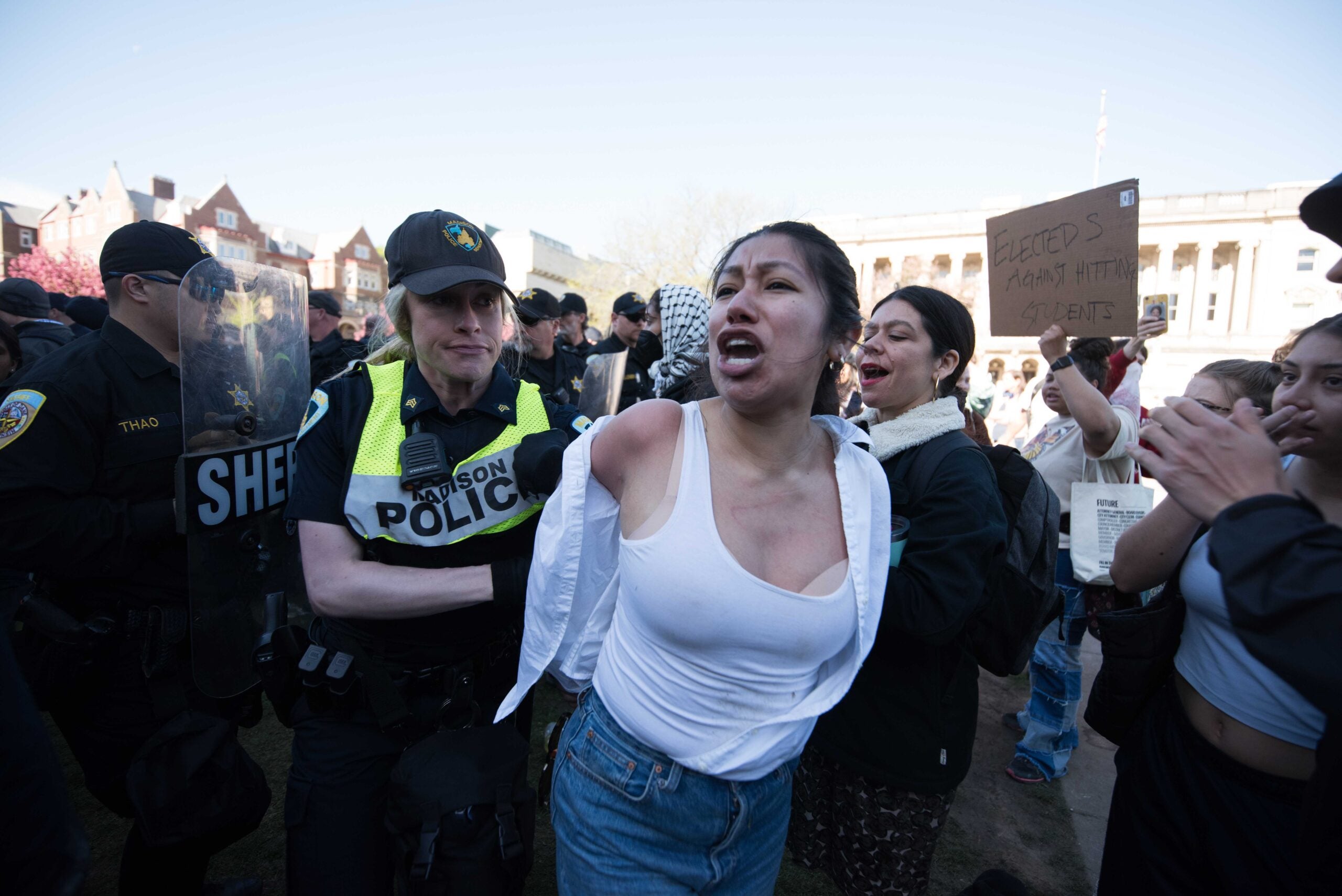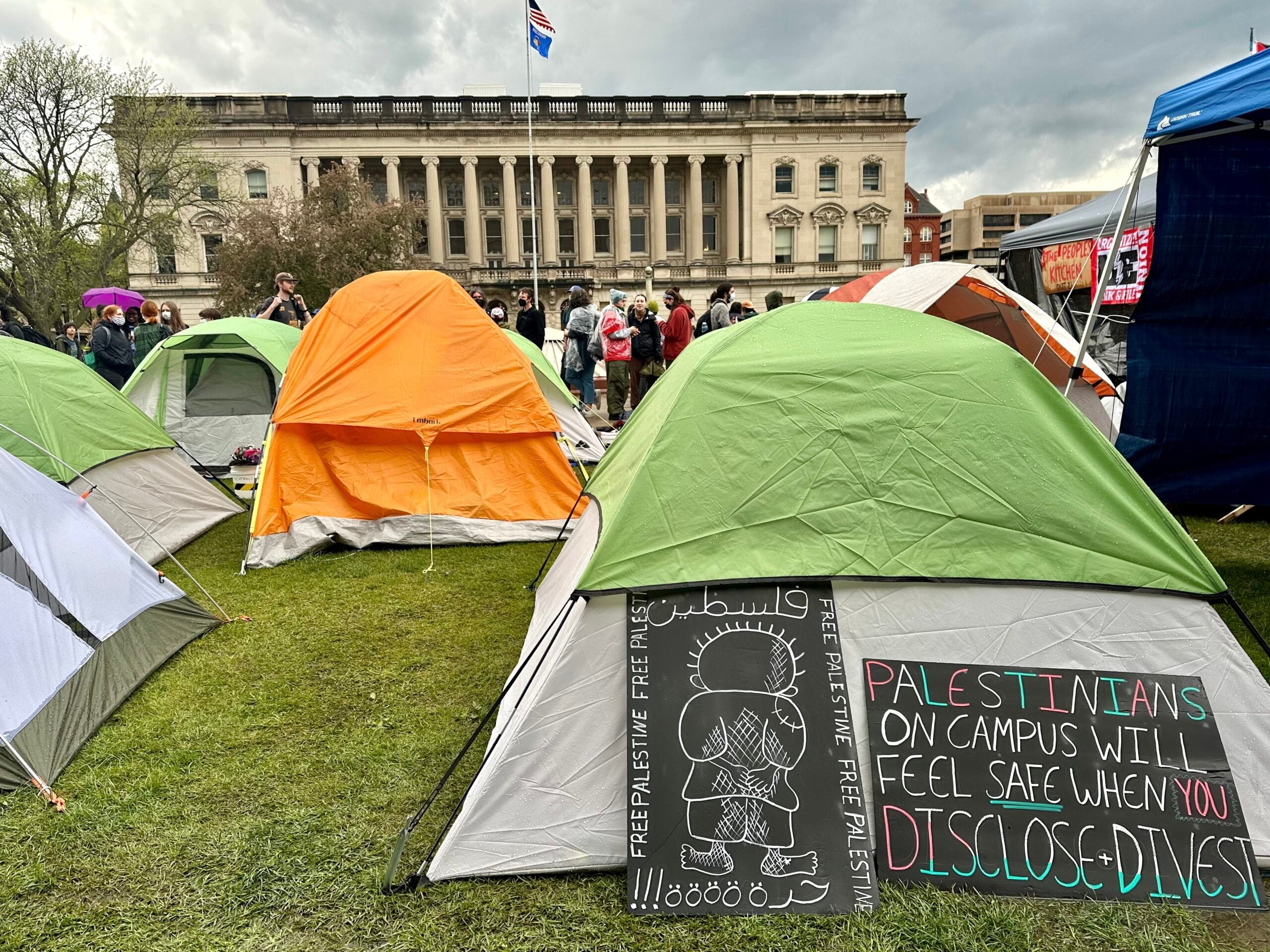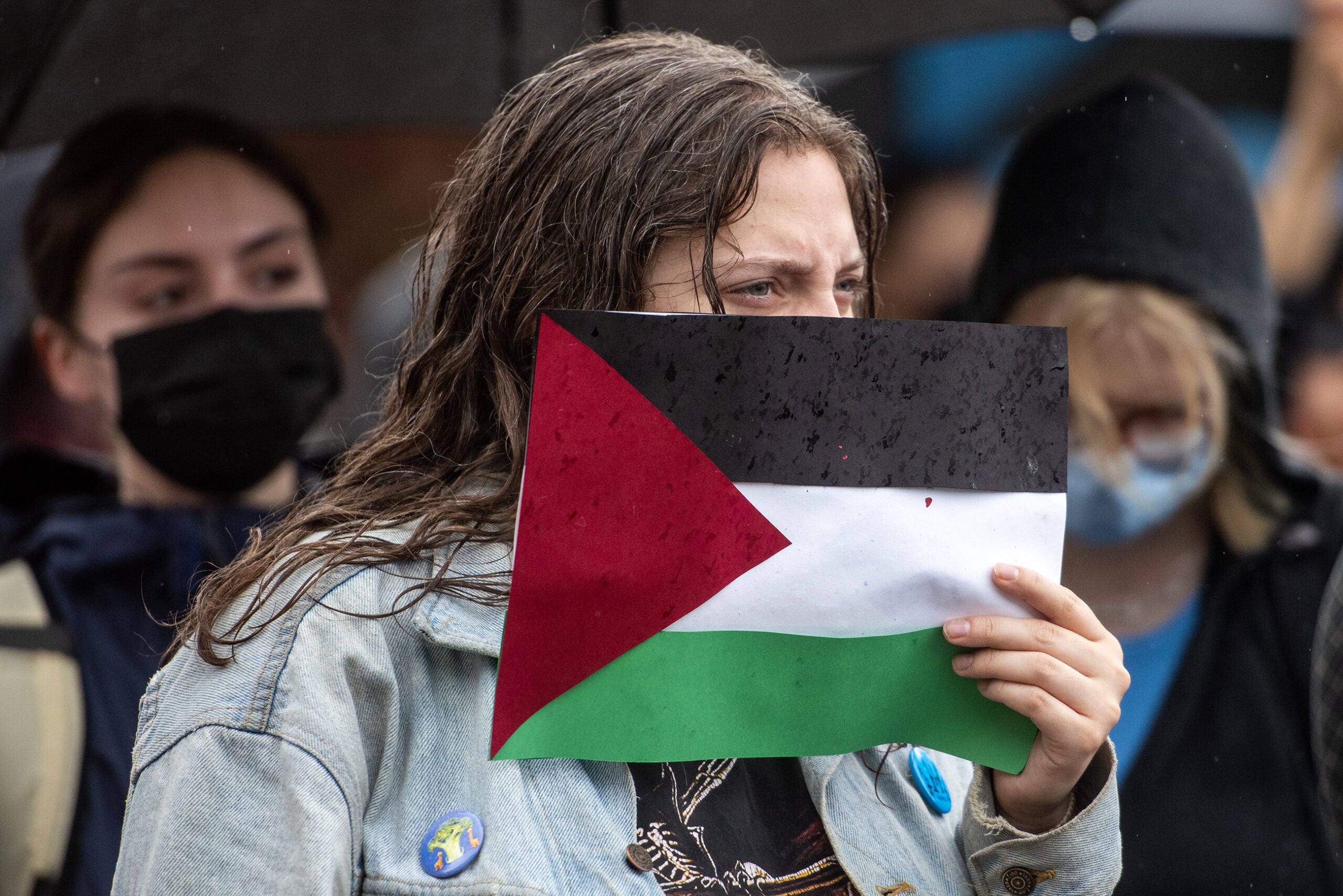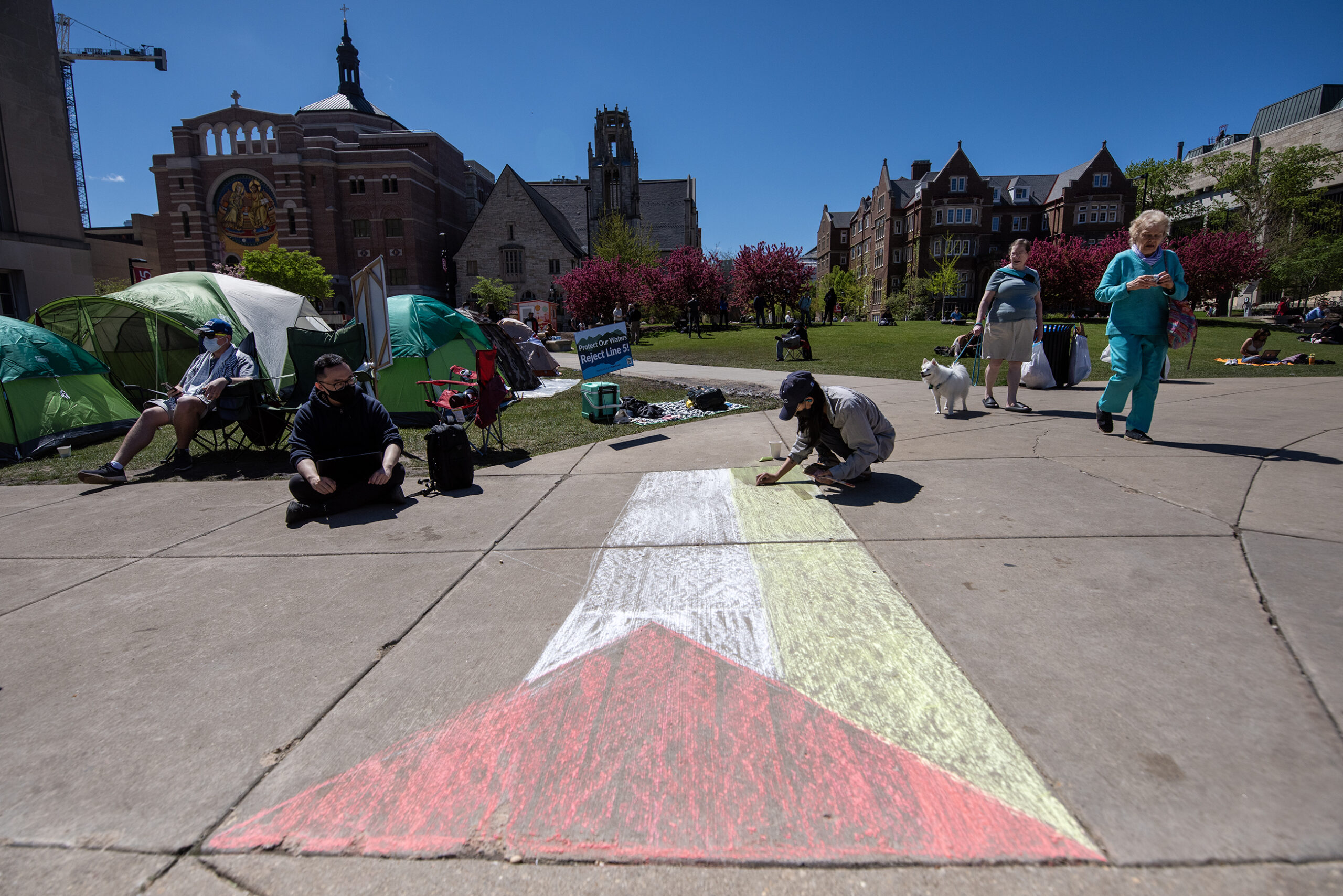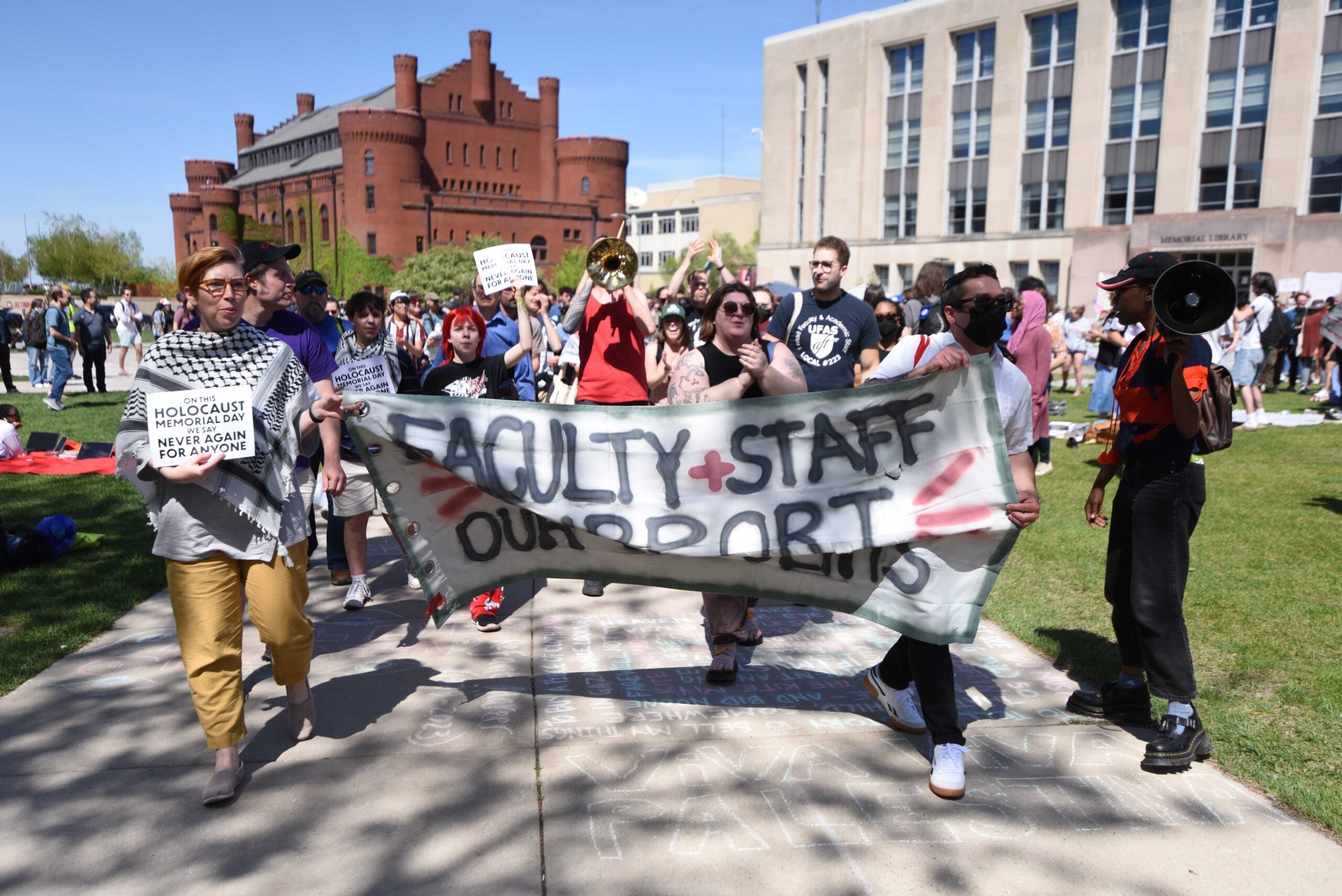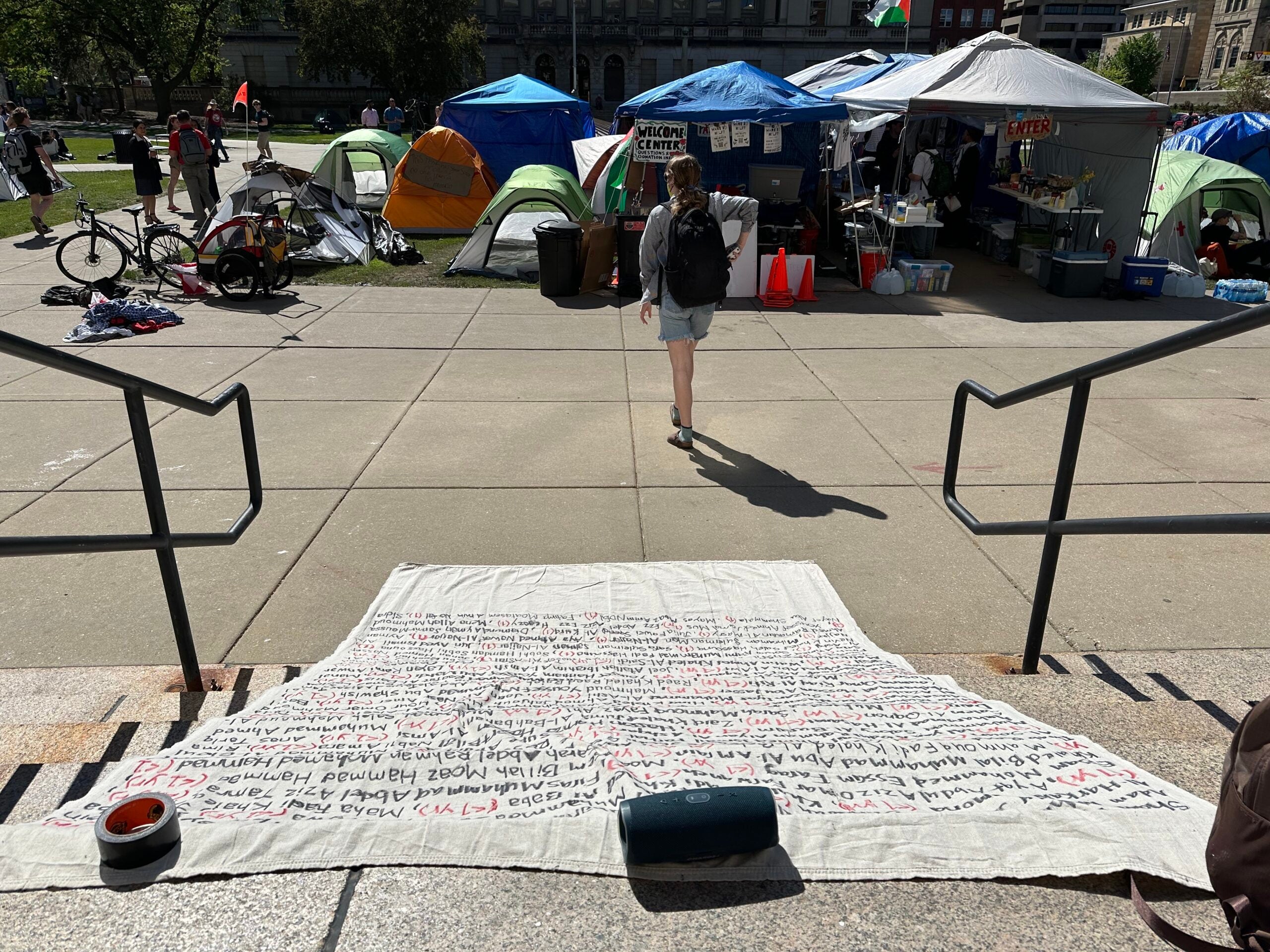Students protesters at the University of Wisconsin-Madison clashed with police Wednesday after officers cleared out a pro-Palestinian encampment, just two days after the student protest began.
Police gave demonstrators staying at the encampment a warning to evacuate shortly before 7 a.m. By 9 a.m., all but two tents had been removed and police had left the area.
UW-Madison spokesperson John Lucas said 34 people were arrested Wednesday morning. Most were released without citations, but four demonstrators were taken to the Dane County Jail for resisting arrest and battery to a police officer.
Stay informed on the latest news
Sign up for WPR’s email newsletter.
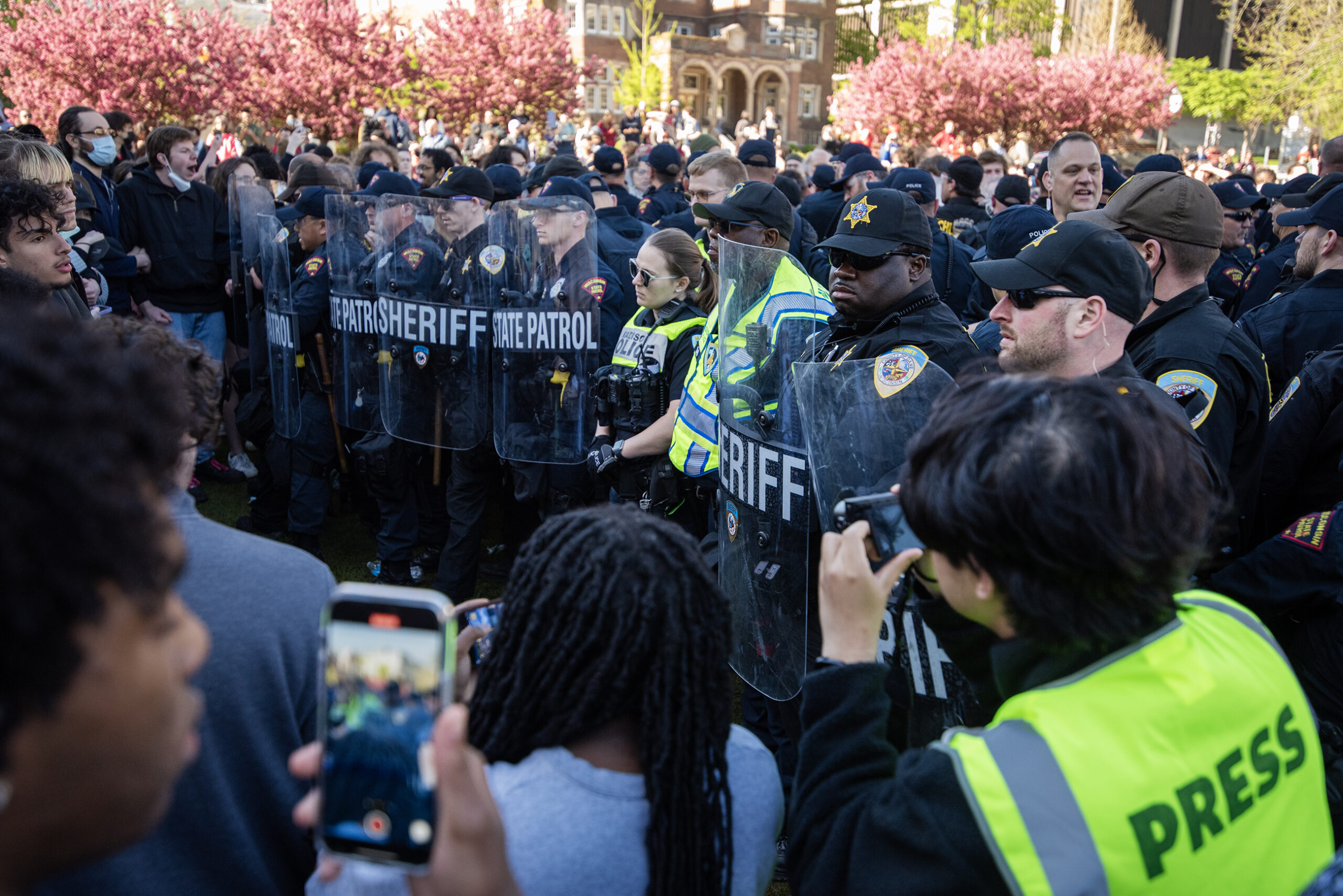
In a campuswide email, UW-Madison Chancellor Jennifer Mnookin said police acted with her authorization, adding protesters had been informed of the possible consequences if the encampment was not removed.
“Every individual was given the opportunity to move away from the tent area and continue peaceful protest,” Mnookin wrote. “I cannot emphasize strongly enough our support for free expression and peaceful protest.”
Two hours after the arrests, protesters began setting up a new encampment that quickly grew to more than a dozen tents. Leaders of the demonstration held trainings on how to resist further arrests.
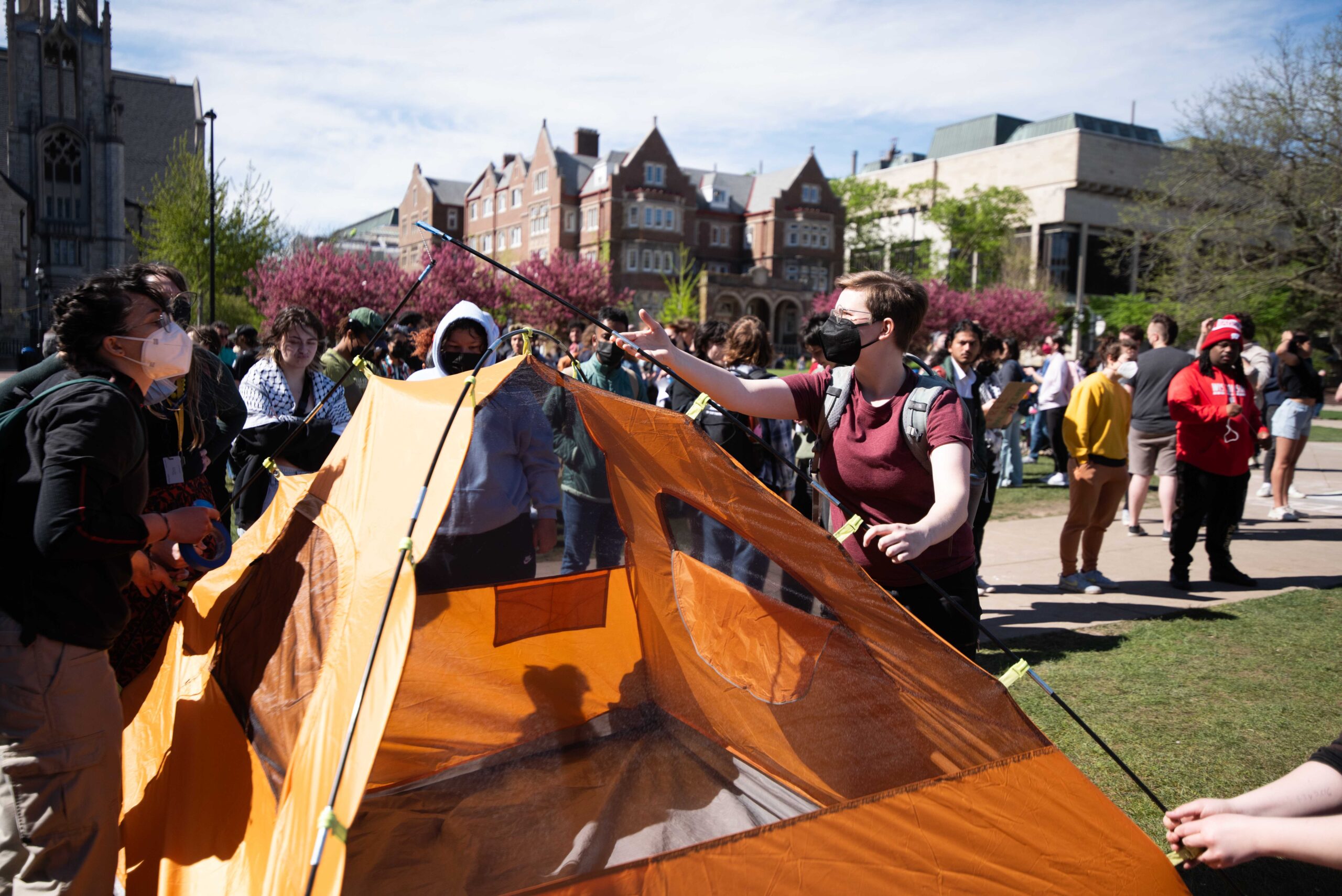
Professors arrested, demonstrators and police report injuries
At least two protesters were injured, according to the ACLU of Wisconsin. Four police officers, including three Dane County deputies and one State Trooper, were also injured, according to UW-Madison Police.
UW-Madison Professor Samer Alatout, who is Palestinian and an advisor to Students for Justice in Palestine, was pinned to the ground by police. He said he was “targeted by police for violence.”
“They pushed me into the ground,” Alatout told reporters. “They pushed me again and again and again.”
Alatout had a gash on his head, which he said came from being hit with a police shield several times.
A video posted to social media appeared to show him pushing against police officers’ shields before the arrest.
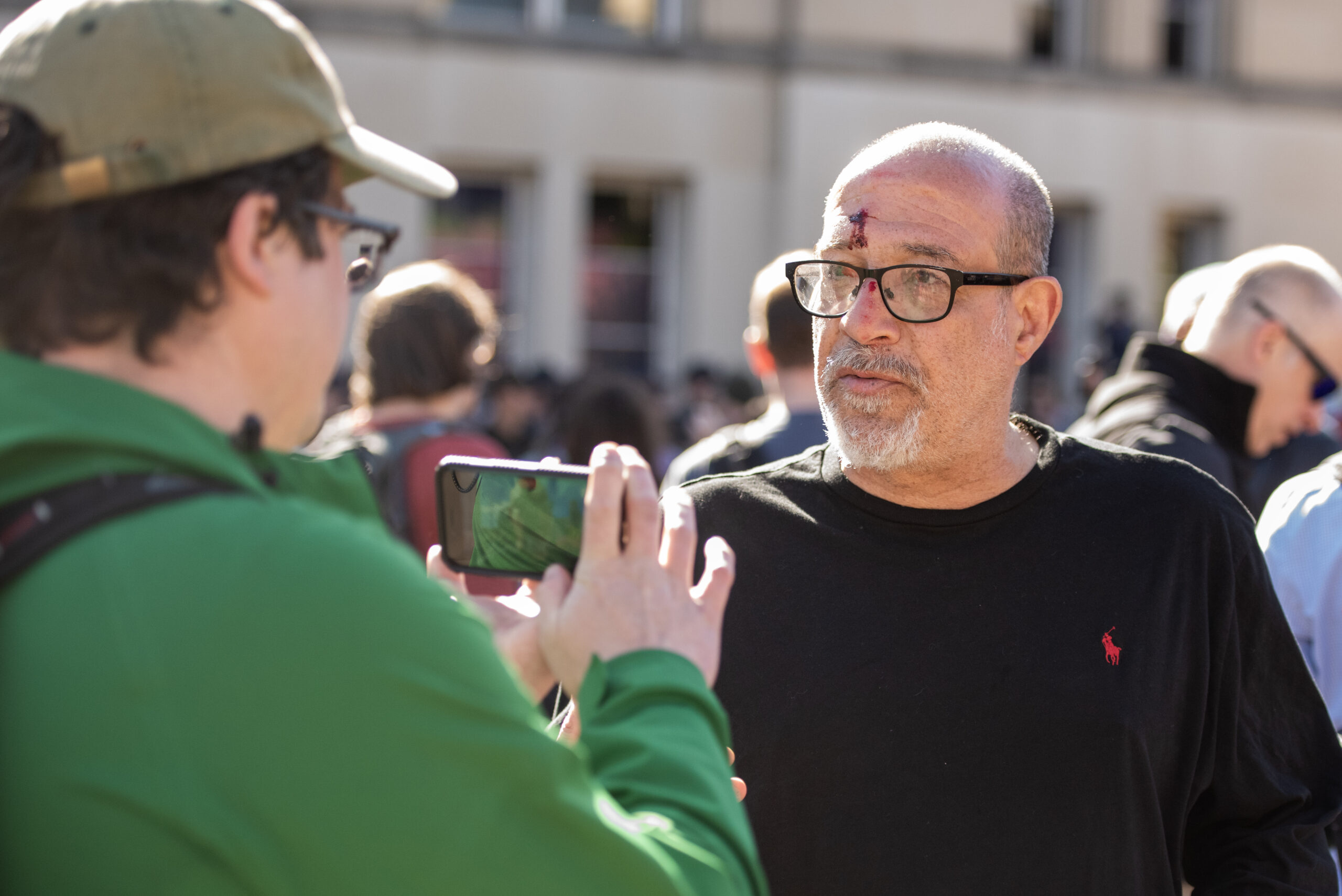
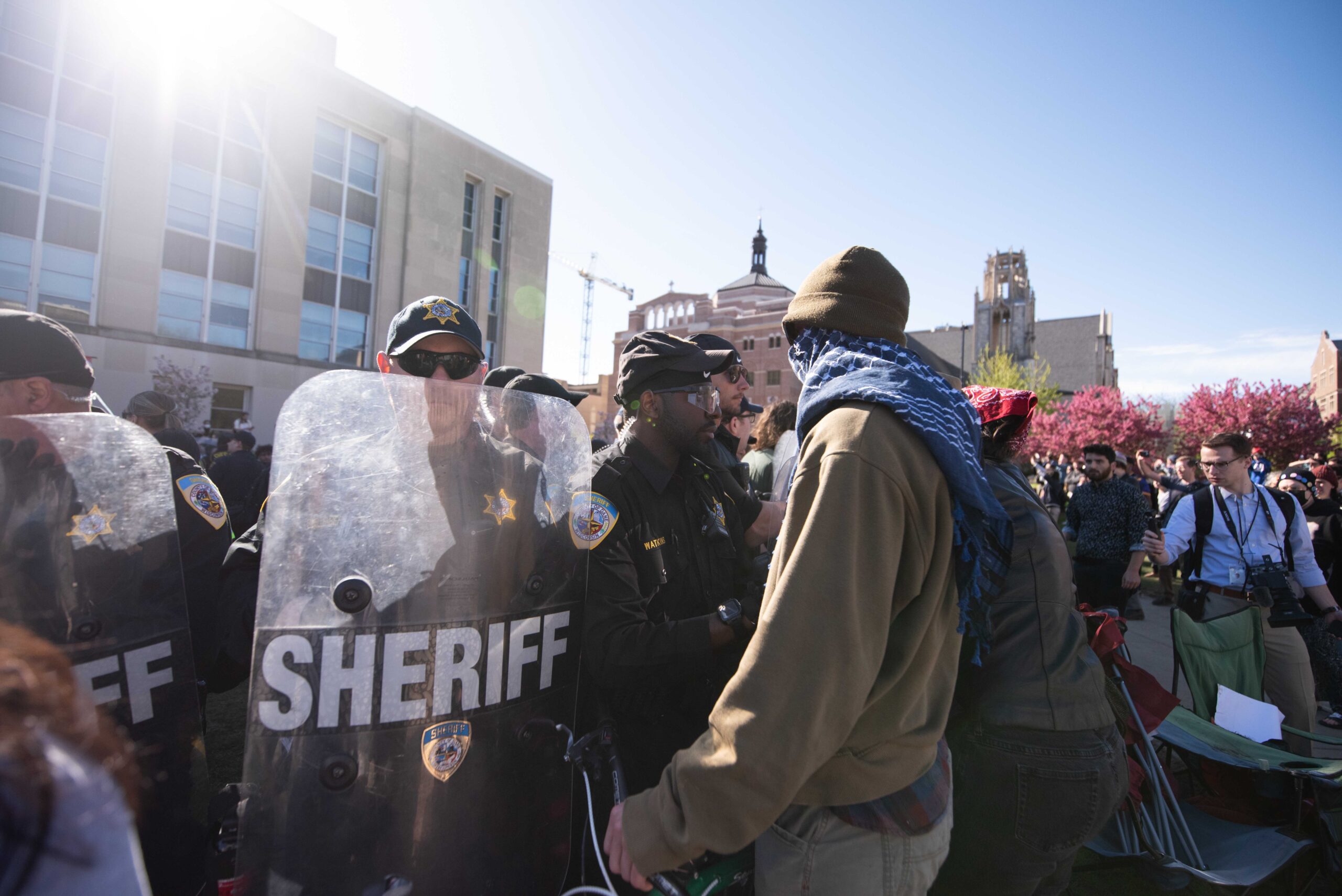
In response, ACLU of Wisconsin Executive Director Melinda Brennan released a written statement condemning the violence.
“Responding to peaceful acts of dissent with militarized police is dangerous and only makes things worse,” Brennan said.
Student protestor Mia Kurzer said the actions of police were uncalled for.
“We’re here for peace,” said Kurzer, who is Jewish and was wearing a small beaded Star of David necklace. “This is a government-funded institution, which we pay for. And it’s a public university. So I don’t understand why they can say we can’t be on public property that’s outside. We’re not blocking anything. We’re not disrupting people.”
While police removed tents and detained protesters who refused to leave, some demonstrators were handcuffed and taken away from the encampment. UW-Madison professor Sami Schalk was escorted by two officers as students shouted, “They’re arresting professors.”
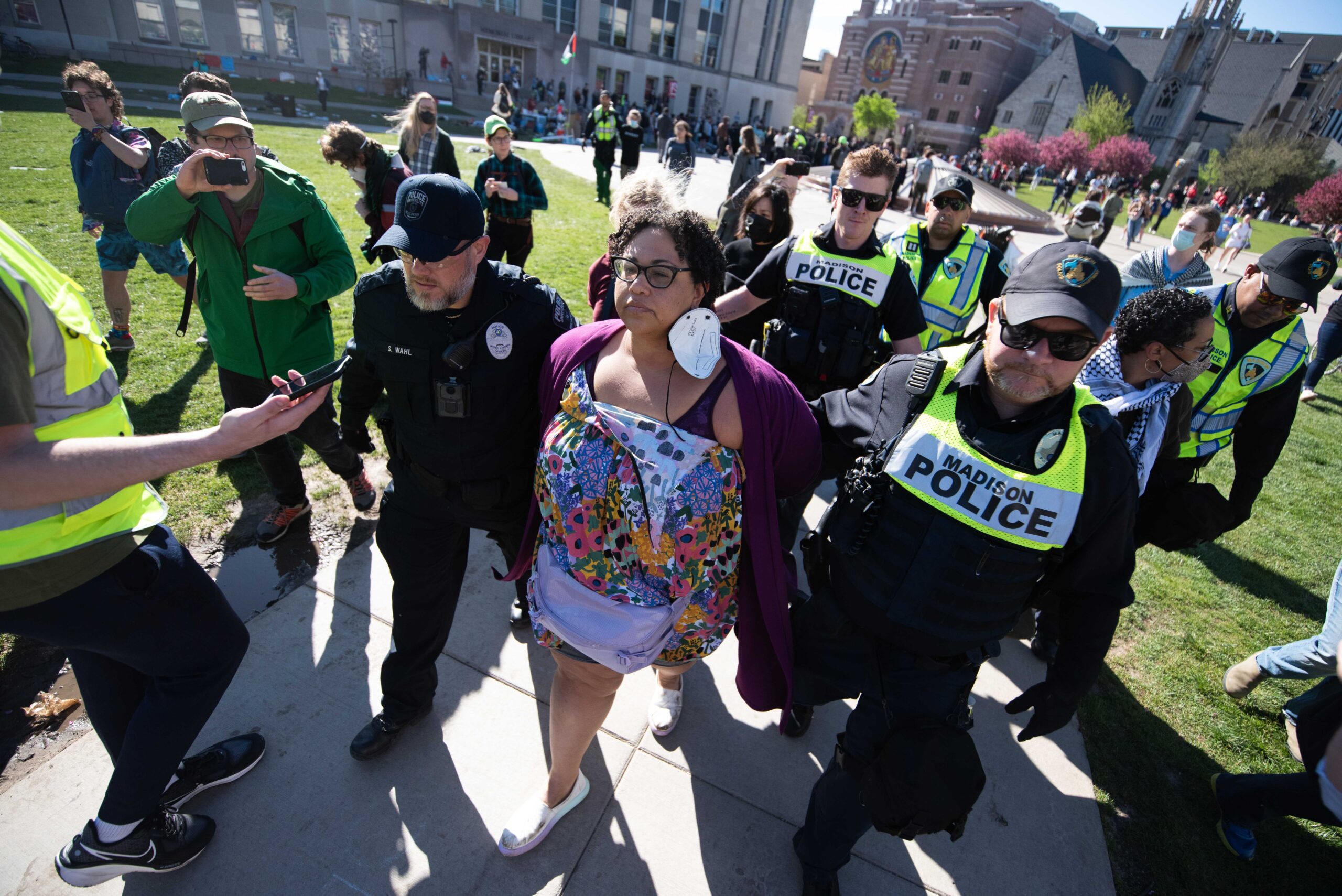
During a press conference following the arrests, UW-Madison Police spokesperson Marc Lovicott said demonstrators are welcome as long they’re not camping.
“That’s the main reason why we were here today and what we enforced,” he told reporters. “We’re welcoming protesters and we’ve welcomed protesters here all along. You can’t camp here, though.”
UW-Madison Dean of Students Christina Olstad tried momentarily to engage with students after the arrests, but she was quickly chased off by protesters who said she “didn’t protect students.”
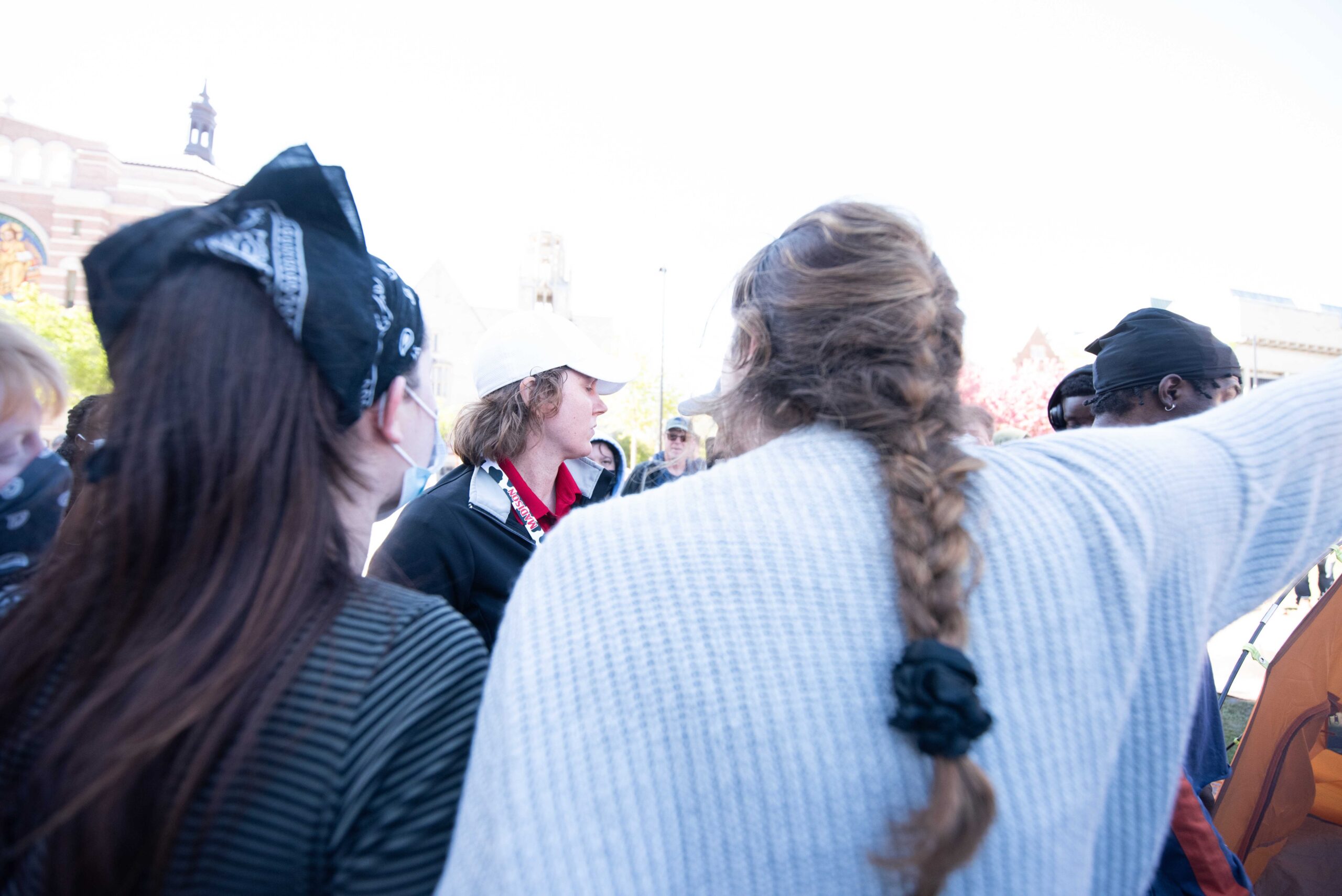
Top campus, political leaders voice support for removing encampment
While some UW faculty, and some Democratic state lawmakers, have joined the protests this week, top campus and political leaders voiced support for removing the protest encampment.
Shortly after officers advanced on demonstrators Wednesday morning, Assembly Speaker Robin Vos, R-Rochester, took to social media to praise Mnookin.
“Good move,” Vos wrote. “Thank you @uwchancellor for doing the right thing by enforcing campus policies and standing up to the unruly mob.”
A spokesperson for Democratic Gov. Tony Evers did not respond to a request for comment Wednesday, but on Tuesday, Evers told CBS58 in Milwaukee that “we will eventually take action if we have to.”
“Well, at some point in time, the encampments have to end,” Evers said. “Whether that’s done voluntarily or not.”
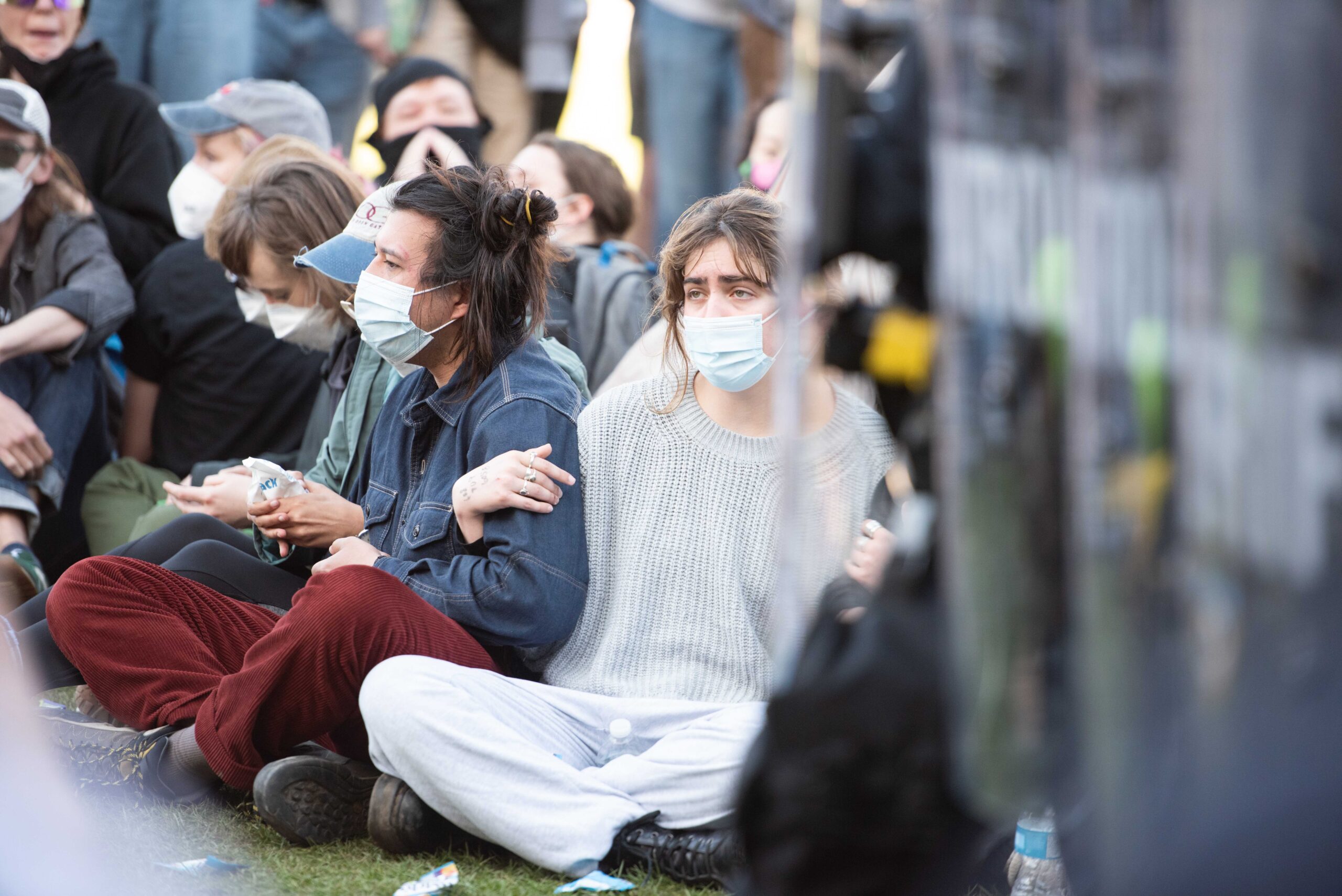
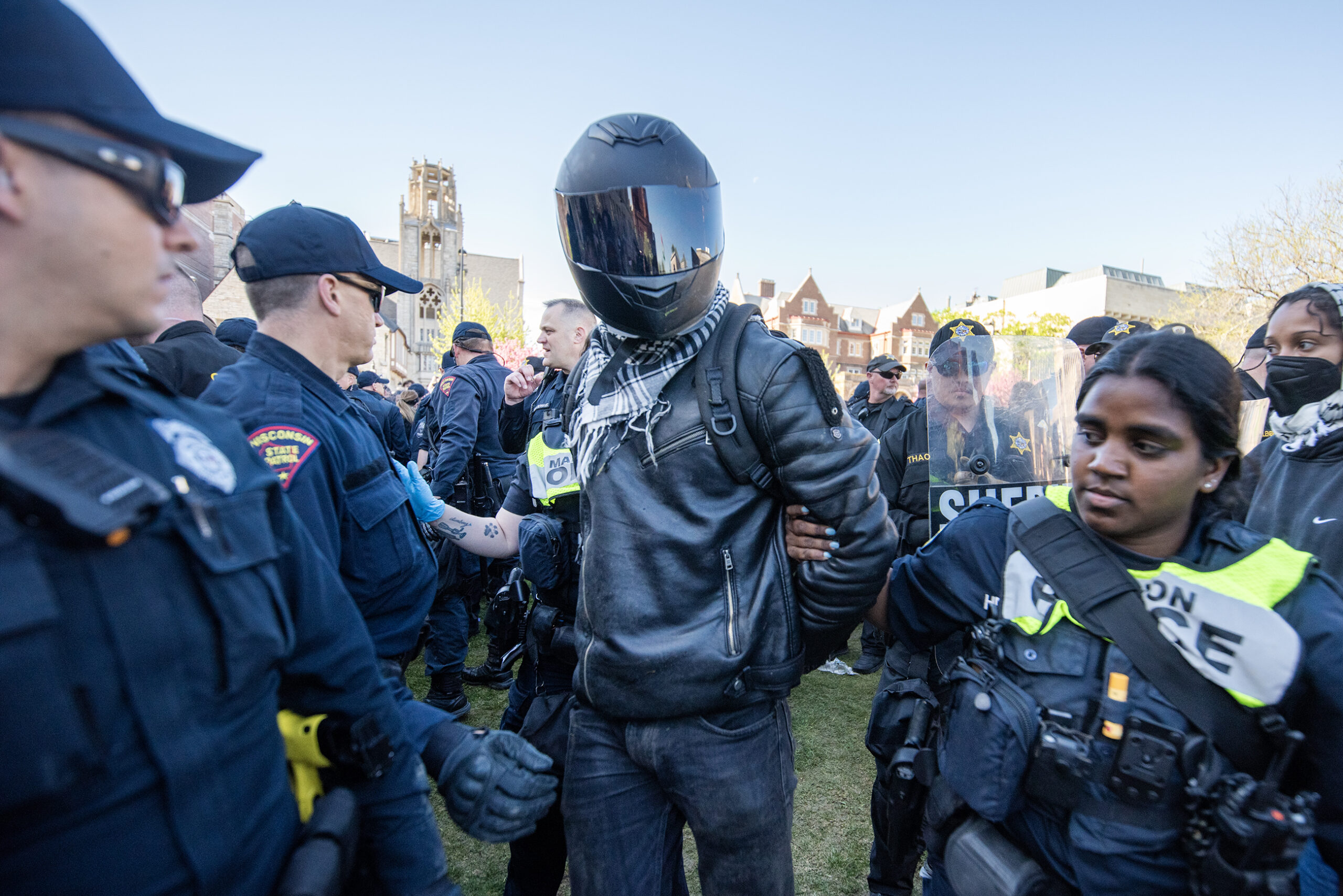
Universities of Wisconsin President Jay Rothman also commended Mnookin during a call with media Wednesday. When asked if there was legislative pressure to clear the tents, Rothman said he didn’t believe there was.
As to how the university will proceed after demonstrators quickly returned with new tents, Rothman said it would be “a process.”
“We’re certainly committed to freedom of expression at our campuses, that’s absolutely critical,” Rothman said. “But I think we have to differentiate freedom of expression and legal protesting versus illegal activities.”
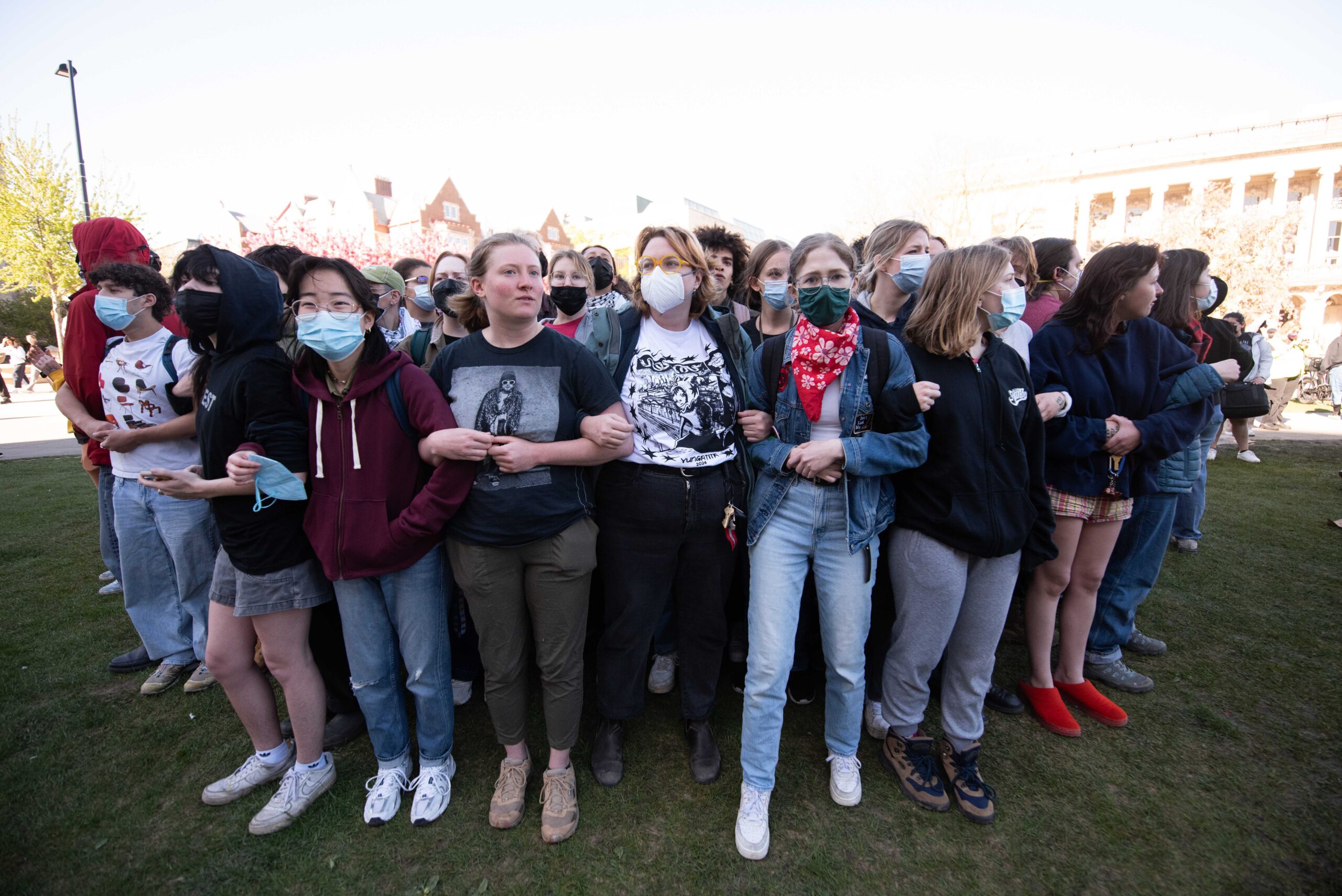
The protest at UW-Madison, and a similar one at UW-Milwaukee, began on Monday, two weeks after students at Columbia University established the first such encampment.
Similar movements have spread to campuses across the country to protest the Israel-Hamas war, and demand that university administrations divest from Israeli companies, programs and causes.
The scene at UW-Milwaukee was calm Wednesday. A spokesperson for the university said they were aware of what was happening in Madison and that police would continue to monitor the encampment in Milwaukee.
“Members of the UWM administration are having conversations with students and community members in the background and are working on peaceful resolutions,” the statement said.
WPR’s Robert D’Andrea, Corrine Hess, Shawn Johnson, Sarah Lehr, Angela Major , Jenny Peek and Anya van Wagtendonk contributed reporting to this story.
Wisconsin Public Radio, © Copyright 2025, Board of Regents of the University of Wisconsin System and Wisconsin Educational Communications Board.
